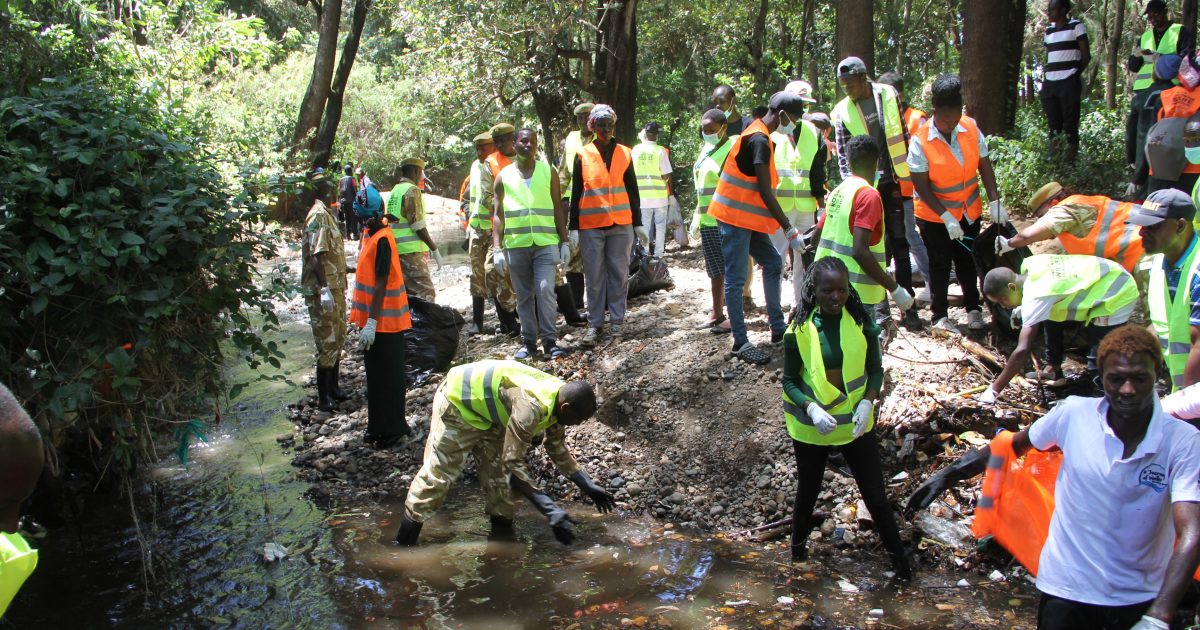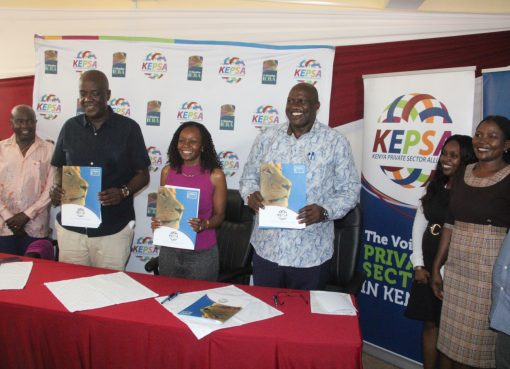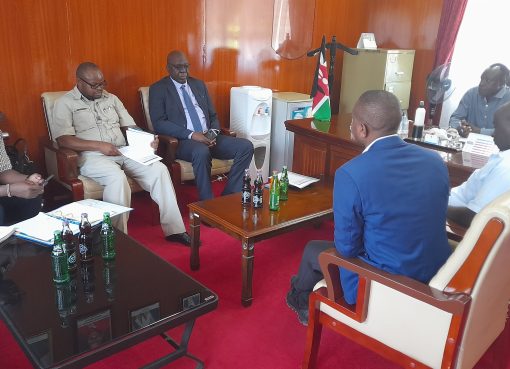More than 200 volunteers participated in cleaning River Nanyuki in Laikipia County as part of activities to mark World Wildlife Day.
The volunteers who included university students and community-based environment conservation groups joined Kenya Wildlife Service (KWS) officers in removing about nine tons of solid waste from the river.
World Wildlife Day is celebrated on March 3 every year to help promote the conservation of wildlife. The culmination of this week’s celebration will be on Monday when conservationists and community groups from counties neighbouring Laikipia will converge in Nanyuki Town for a street procession and later hold a daylong exhibition.
KWS Assistant Director in charge of Laikipia County Rose Malenya said river pollution was a major threat in the efforts to conserve water sources noting that they only managed to cover two kilometers in the clean-up exercise.
“We only worked on two kilometers of the river and removed a huge amount of garbage. Suppose we were to cover the entire river? This shows how serious river pollution is serious in the country,” said Malenya.
The 97 km long River Nanyuki is one of the major tributaries of River Ewaso Nyiro, a source of livelihood in semi-arid northern Kenya also supporting tens of wildlife species.
Most of the garbage collected from the river included plastic bottles and other non-biodegradable materials that blocked the free flow of the river.
Malenya said as part of celebrating this year’s World Wildlife Day whose theme is “Connecting people and planet-innovation for wildlife conservation”, KWS and other stakeholders had organized various activities throughout the week all geared to protecting two major water towers within the mountain region.
“We decided to clean the Nanyuki River since many people depend on it and wildlife downstream too. This is a clear message that the river is dirty. There is a need to conduct periodical clean-up exercises for the welfare of the community and wild animals,” she pointed out.
She said they have planted more than 4,000 trees in Mt Kenya and Aberdare forest and invited students to visit national parks and other wildlife-protected areas as part of a sensitization campaign on wildlife and environmental conservation.
Participants during the celebrations called for concerted efforts among conservationists, development partners, and government agencies in combating climate change whose adverse effects were taking a toll on livelihoods.
“It’s important to conserve the environment and especially the water sources because water is life. And remember that when you use river upstream, there is someone downstream,” said Ms Silvia Chemtai Ruto, Dedan Kimathi University student and one of Nanyuki River clean-up exercise participants.
By Muturi Mwangi





